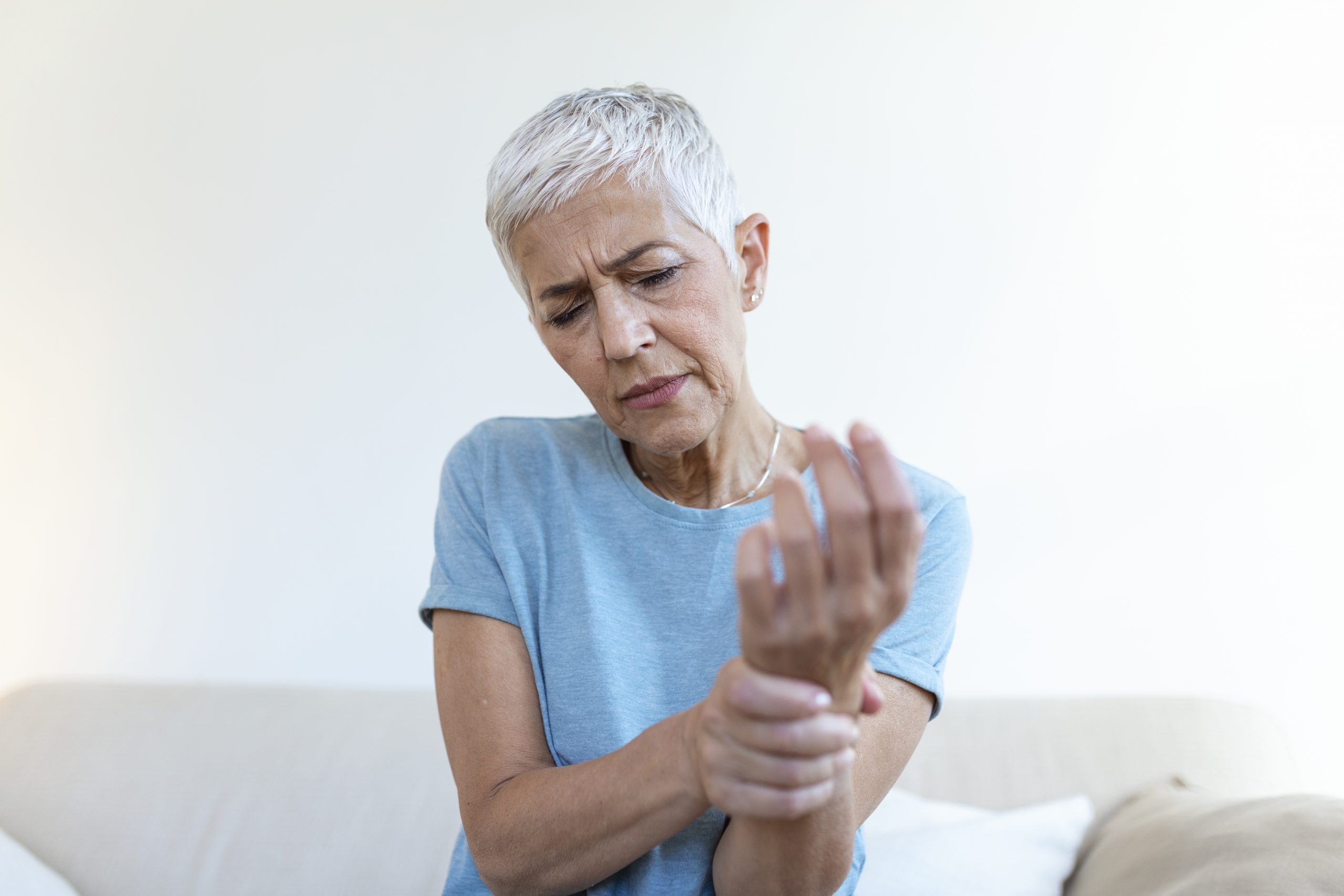

Dr. Sally Fenton is collaborating with the Rheumatology Research Patient Partnership to create tools that will encourage rheumatoid arthritis patients to be more active.
The Birmingham Rheumatology Research Patient Partnership and Dr. Sally Fenton, Lecturer in Lifestyle Behaviour Change at the School of Sport, Exercise and Rehabilitation Sciences, are working together on a study to create a tool that will increase physical activity for people with rheumatoid arthritis (RA).
The MISSION-RA study, which stands for “Moving to Support Sustained Improvement of Outcomes in Rheumatoid Arthritis,” intends to create a digital health intervention to encourage regular physical activity among those who have RA. This will be accomplished by creating a mobile health app that connects with the widely used Fitbit activity tracker.
The MISSION-RA app will be created especially for RA patients and by them. There are two ways this will be done. The app will first be developed through a series of workshops, co-design studies, and interviews. Then, based on symptoms like pain, exhaustion, and mobility, artificial intelligence will be employed within the app to give individualized care for people living with RA.
“A priority of the MISSION-RA study is to involve people living with rheumatoid arthritis (RA) in the research process at all stages. This includes developing the research idea, helping to collect data, communicating research findings and helping to generate real impact at the end of the study.” Dr Sally Fenton, Lecturer in Lifestyle Behaviour Change, University of Birmingham.
The National Rheumatoid Arthritis Society (NRAS) is cooperating with the project to make it more efficient and to help guarantee that people with RA are at the center of the research process. Elspeth Insch and Bob Michell, members of the Birmingham Rheumatology Research Patient Partnership (R2P2), were also involved in the project and contributed to the development of the National Institute for Health and Care Research (NIHR)-successful grant application.
Dr Fenton goes on to explain: “NRAS have been instrumental in forming our Patient Research Partner Committee, recruiting 10 people living with RA who vary in terms of their age, sex, ethnicity, years since diagnosis, and severity of their RA. This helps to ensure a diverse range of voices are heard when key decisions about the study are being made.”
The Patient Research Partner Committee has so far assisted the study by analyzing study documentation, helping to create research procedures, and suggesting potential features for the MISSION-RA app that will be investigated during the co-development phase. Additionally, several committee members worked on the creation of a patient information sheet that has gotten positive reviews from both patients and medical professionals as well as the MISSION-RA Study video, which provides an overview of the study.
Recently, several members of the Patient Research Partner Committee have begun to assist with data collection. Several persons with RA will be interviewed as part of the MISSION-RA study’s initial phase to learn about their experiences with physical exercise. Two Committee members are conducting these interviews, which began in July 2023. They are working together as co-researchers. The hope is that having interviewers who have personal experience with RA will lead to more in-depth discussions about topics that might not have otherwise been covered if interviews were performed by university academics. Along with contributing to data analysis and interpretation, these co-researchers will also provide feedback to the larger Patient Research Partner Committee.
Dr Fenton concludes: “There is still much work to be done on the MISSION-RA study, and the Patient Research Partner Committee will support this work at all stages. This experience so far has been extremely rewarding and fulfilling for me as a researcher. It has given me the opportunity to really involve, enthuse and motivate a group of people living with RA about my research – bringing them along with me on the road to discovery. My goal for this project is to make sure that everybody involved recognises that they have an enormous value to add, and to make sure that their voices, thoughts and experiences are all reflected in the research we are conducting.”
The academic lead for R2P2, Dr Marie Falahee adds: “Our patient partners play a critical role in the delivery of high quality patient-centred research. The development of non-drug treatments to improve outcomes for patients with RA is strongly supported by patients, and we’re delighted that our members have made such an important contribution to this study”.
more recommended stories
 AI Predicts Chronic GVHD Risk After Stem Cell Transplant
AI Predicts Chronic GVHD Risk After Stem Cell TransplantKey Takeaways A new AI-driven tool,.
 Red Meat Consumption Linked to Higher Diabetes Odds
Red Meat Consumption Linked to Higher Diabetes OddsKey Takeaways Higher intake of total,.
 Pediatric Crohn’s Disease Microbial Signature Identified
Pediatric Crohn’s Disease Microbial Signature IdentifiedKey Points at a Glance NYU.
 Nanovaccine Design Boosts Immune Attack on HPV Tumors
Nanovaccine Design Boosts Immune Attack on HPV TumorsKey Highlights Reconfiguring peptide orientation significantly.
 High-Fat Diets Cause Damage to Metabolic Health
High-Fat Diets Cause Damage to Metabolic HealthKey Points Takeaways High-fat and ketogenic.
 Acute Ischemic Stroke: New Evidence for Neuroprotection
Acute Ischemic Stroke: New Evidence for NeuroprotectionKey Highlights A Phase III clinical.
 Statins Rarely Cause Side Effects, Large Trials Show
Statins Rarely Cause Side Effects, Large Trials ShowKey Points at a Glance Large.
 Can Too Many Antioxidants Harm Future Offspring?
Can Too Many Antioxidants Harm Future Offspring?Key Takeaways High-dose antioxidant supplementation in.
 Anxiety Reduction and Emotional Support on Social Media
Anxiety Reduction and Emotional Support on Social MediaKey Summary Anxiety commonly begins in.
 Liquid Biopsy Measures Epigenetic Instability in Cancer
Liquid Biopsy Measures Epigenetic Instability in CancerKey Takeaways Johns Hopkins researchers developed.

Leave a Comment